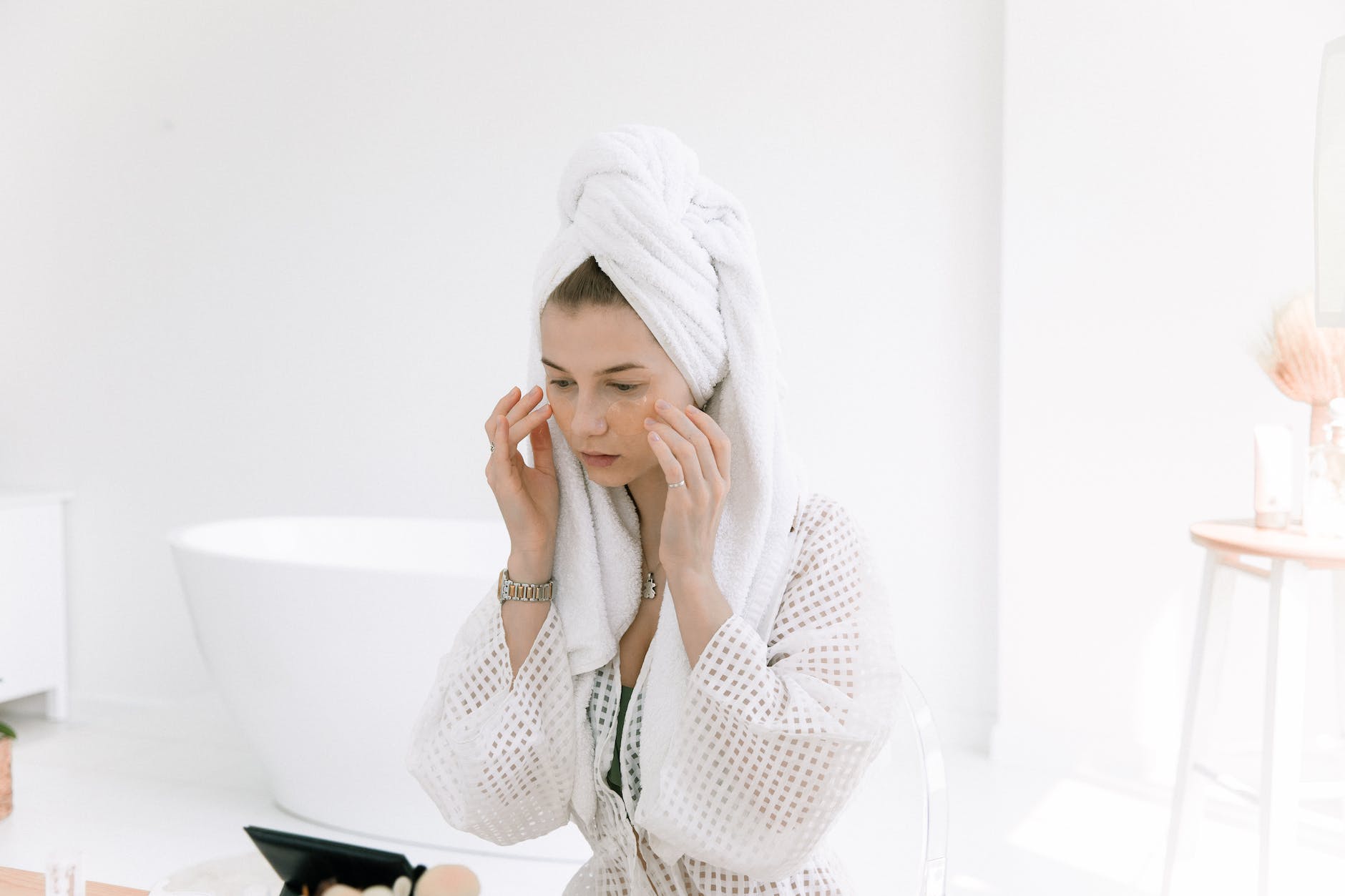
When you think of mangoes, the first thing that probably comes to mind is their sweet, tropical taste. But did you know this “king of fruits” is also a secret weapon for achieving glowing, healthy skin? Whether you eat them, apply them, or use their extracts in skincare, mangoes are packed with nutrients that can transform your complexion.
In this in-depth guide, we’ll explore 7 science-backed ways mangoes benefit your skin — and how to incorporate them into your skincare routine. Prepare to be amazed by how much goodness is hidden beneath that golden flesh!
🌟 1. Boosts Collagen & Fights Aging
Key Nutrient: Vitamin C
Collagen is the protein responsible for keeping your skin firm and youthful. As we age, our collagen production slows down, leading to sagging, fine lines, and wrinkles. Mangoes are rich in vitamin C, a crucial antioxidant that promotes collagen synthesis.
Why It Matters:
- Supports skin structure and elasticity
- Helps reduce signs of aging
- Promotes faster wound healing
💡 Pro Tip: Enjoy a mango smoothie or fruit bowl regularly to support your skin from the inside out.
✨ 2. Brightens Skin and Evens Out Tone
Key Nutrients: Vitamin A (Beta-Carotene) + Vitamin C
Uneven skin tone, pigmentation, and dullness can make your skin look tired. Mangoes contain beta-carotene, which converts to vitamin A, helping to rejuvenate skin cells. When combined with vitamin C, it enhances radiance and reduces hyperpigmentation.
Skin Perks:
- Reduces dark spots
- Enhances overall skin luminosity
- Accelerates cell turnover
💡 DIY Mango Mask: Mix mashed mango pulp with a spoon of honey and a few drops of lemon juice. Apply for 10–15 minutes, then rinse.
💦 3. Deeply Hydrates and Moisturizes
Key Nutrients: Vitamin E, Potassium, and Water Content
Dry and flaky skin? Mango has your back. Its high water content (about 83%) hydrates from within, while vitamin E and potassium help retain moisture and soften the skin. Additionally, mango butter — extracted from the seed — is a powerhouse moisturizer often used in natural cosmetics.
Why Your Skin Will Love It:
- Restores hydration
- Leaves skin soft and supple
- Reduces dryness and flakiness
💡 Topical Tip: Try mango butter as a natural alternative to commercial moisturizers, especially for sensitive or dry skin.
🛡️ 4. Provides Antioxidant Protection
Key Phytochemicals: Mangiferin, Quercetin, Beta-Carotene
Environmental stressors like UV rays, pollution, and stress generate free radicals — unstable molecules that damage skin cells and accelerate aging. Mangoes are loaded with antioxidants that neutralize these free radicals and shield your skin.
Benefits:
- Prevents premature aging
- Enhances skin resilience
- Reduces oxidative stress
💡 Nutrition Insight: A diet rich in antioxidants doesn’t just protect your skin — it improves your overall health, too.
🧼 5. Helps Combat Acne and Inflammation
Key Nutrients: Vitamin A, Polyphenols, Antibacterial Compounds
Acne-prone skin can benefit significantly from mangoes. The vitamin A in mango helps regulate oil production, while its anti-inflammatory and antibacterial properties soothe redness and fight acne-causing bacteria.
What It Does:
- Reduces excess sebum
- Calms inflamed breakouts
- Prevents new blemishes
💡 Try This: Use mango pulp as a natural spot treatment — apply a small amount to acne-affected areas, leave for 10 minutes, and rinse.
🌈 6. Gently Exfoliates and Renews Skin
Natural Enzymes: Alpha-Hydroxy Acids (AHAs)
The enzymes in mangoes (especially in the peel) act as gentle exfoliants that remove dead skin cells and unclog pores. This helps reveal fresh skin underneath and enhances your skin’s natural glow.
Why It’s Effective:
- Improves skin texture
- Minimizes clogged pores
- Brightens dull complexions
💡 DIY Scrub: Mix mango peel powder (sun-dried and ground) with yogurt and a pinch of turmeric. Gently scrub in circular motions.
☀️ 7. Offers Mild UV Protection
Key Compounds: Polyphenols, Carotenoids
While mango isn’t a substitute for sunscreen, some studies show mango extracts can protect against UVB damage and sun-induced skin aging. The presence of polyphenols and carotenoids offers natural photoprotection and helps reduce the impact of sun exposure.
Bonus Benefit:
- Defends against sunspots and UV-induced aging
- Enhances skin’s resilience to sunlight
💡 Note: Always wear SPF, but adding mango to your routine adds a layer of internal defense.
⚠️ A Few Cautions to Keep in Mind
While mangoes are skin-friendly, here are a few precautions:
- Allergies: Mango skin contains urushiol (same as poison ivy), which may cause irritation in sensitive individuals.
- Chemical Ripening: Always wash mangoes thoroughly, especially if they’ve been artificially ripened.
- Patch Test: Before using mango-based masks or scrubs, do a patch test to rule out allergies.
🥭 Final Thoughts: Is Mango the Ultimate Skin Superfruit?
Absolutely. Mango isn’t just a summertime treat — it’s a skin superhero. From fighting acne to brightening dull skin and offering anti-aging benefits, its nutrient-rich profile makes it one of the most versatile ingredients for skin health.
Whether you consume it or apply it, incorporating mango into your routine can give you that natural glow you’ve been craving — no expensive serums required.
📌 Quick Takeaways
| Benefit | Key Nutrient/Compound | Application |
|---|---|---|
| Collagen Boost | Vitamin C | Eat or topical |
| Skin Brightening | Vitamin A & C | Eat + mask |
| Hydration | Vitamin E, Potassium | Eat + butter |
| Antioxidant | Mangiferin, Quercetin | Eat |
| Acne Control | Vitamin A, Anti-inflammatory | Mask |
| Exfoliation | Enzymes | Peel scrub |
| UV Protection | Polyphenols, Carotenoids | Dietary support |
🍃 FAQs: Mango for Skin Health
1. Can eating mangoes really improve my skin?
Yes. Mangoes are rich in skin-nourishing nutrients like vitamins A, C, and E, which help promote collagen production, even skin tone, and reduce oxidative damage — all from the inside out.
2. Is it safe to apply mango pulp directly to the skin?
Generally, yes — especially for people without sensitive skin. However, always do a patch test on a small area first to check for any reactions. Avoid mango peel unless it’s dried and processed, as it contains urushiol.
3. How often should I use mango on my face?
You can use a mango face mask 1–2 times per week. Overuse can lead to over-exfoliation due to natural enzymes, especially if combined with other active skincare ingredients.
4. Does mango help with acne?
Yes. Mango contains vitamin A (retinoids) and anti-inflammatory compounds that help reduce sebum production, unclog pores, and calm acne-related inflammation.
5. What’s the best way to use mango for skin brightening?
Use mango pulp mixed with honey and lemon juice as a brightening mask. Alternatively, consuming mangoes daily during the season helps improve skin tone naturally over time.
6. Can I use mango butter as a facial moisturizer?
Yes, but it’s more suited for dry to very dry skin types. It’s rich and nourishing but may be too heavy for oily or acne-prone skin if used on the face.
7. Are mango-based products good for sensitive skin?
Some mango extracts and mango butter are suitable for sensitive skin, but raw mango or mango peels may cause irritation. Choose fragrance-free, dermatologically tested products if you have sensitive skin.
8. Can mango help reduce wrinkles and fine lines?
Yes. Mango is a good source of antioxidants and vitamin C, which support collagen production, improve skin elasticity, and reduce signs of aging when used regularly.
9. Is there any risk from eating too many mangoes for skin health?
Yes — overconsumption may cause breakouts in some individuals due to mango’s natural sugar content and heat-producing nature (according to Ayurveda). Stick to 1 mango per day during peak season.
10. What’s better — eating mango or applying it to the skin?
Both approaches are beneficial. Eating mangoes provides systemic, long-term benefits, while topical application offers targeted, short-term improvements like exfoliation and hydration.












